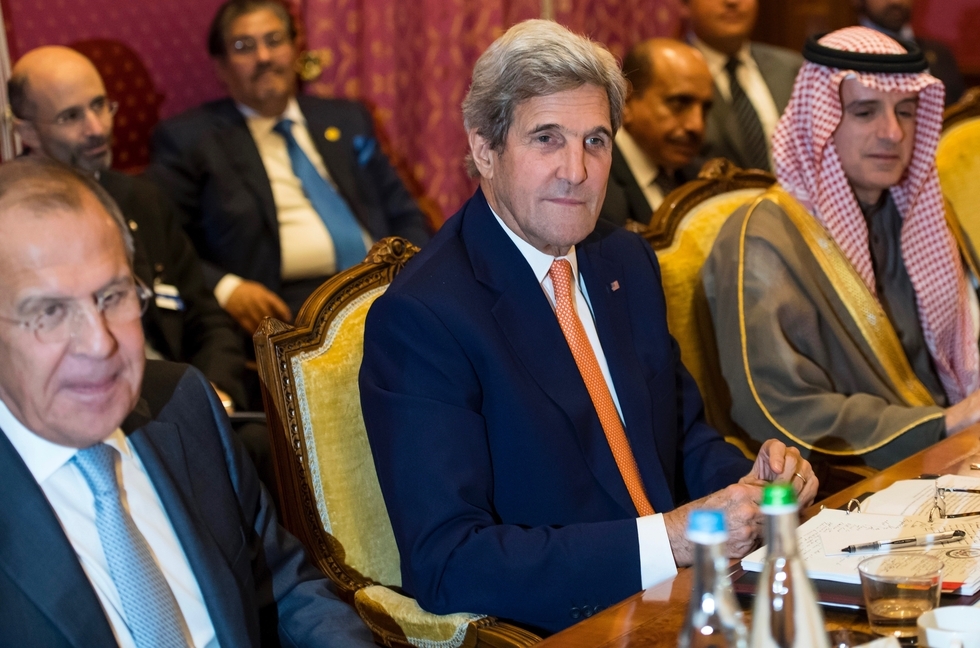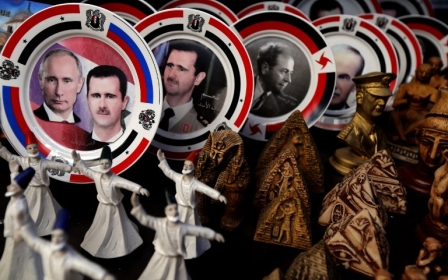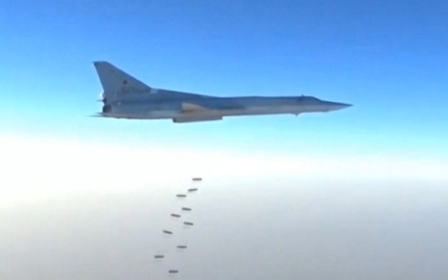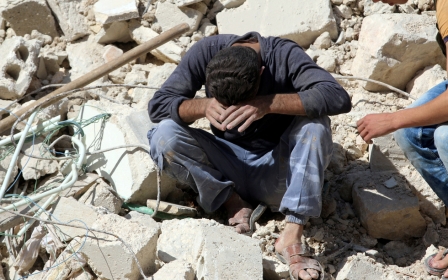Syria talks end, no breakthroughs but more ideas emerge

Talks in Switzerland between Washington, Moscow and Syria's neighbours ended within hours of starting on Saturday with no breakthrough on halting the violence ravaging the war-torn country.
US Secretary of State John Kerry said the Lausanne meeting produced some new ideas on reviving a ceasefire in Syria, where the government continues to pound rebel-held areas in Aleppo.
He said it was too early to reveal what these ideas are, and that high-level contacts - but not a ministerial-level meeting - would continue on Monday to flesh them out.
Kerry welcomed what he said had been more than four hours of "very candid, first time discussion ... open and free-wheeling ... with all of the key parties at the table simultaneously".
"I would characterise this as exactly what we wanted," he told reporters at the lakeside hotel where he met Russian, Iranian, Saudi, Turkish, Egyptian, Jordanian, Iraqi and Qatari envoys.
The US envoy’s tone was upbeat, and came in spite of diplomats from all sides warning against hopes for a rapid ceasefire.
Away from the talks, Moscow's actions showed no sign that it might be softening its strong support for Syrian President Bashar al-Assad and his campaign against US-backed rebels.
Fierce fighting was also continuing elsewhere in the multi-front conflict, with Turkish-backed fighters closing in on Dabiq, a symbolic stronghold of the Islamic State (IS) group.
In Aleppo, Assad's Russian-backed government forces intensified their bombardment of the rebel-held east of the city, further damaging any prospect of a renewed ceasefire.
Russian Foreign Minister Sergei Lavrov joined Kerry in welcoming the idea of bringing other powers into the mix saying, "We must prolong our contacts over the coming days."
Kerry and Lavrov, once joint sponsors of international peace efforts, met ahead of the broader talks, but US officials insisted that their "bilateral track" remained dead.
President Barack Obama has been adamant that US forces will not become caught up in the war, and Kerry was hoping that talks with Russia and regional powers might yield new ideas.
Kerry said that the group - bigger than bilateral US-Russian talks, but smaller than the 23-nation International Syria Support Group - had proved diplomatically productive.
While there were tensions, he said, they shared the goal of a reduction in violence, more humanitarian access to besieged areas and a very quick return to political dialogue.
"The way it wrapped up was to have several ideas that need to be quickly followed up," Kerry said.
"The next contact on trying to follow up on this is going to be immediately because this is urgent, and we're not letting any grass grow under our feet."
The talks come as Moscow faces growing criticism over its backing for Assad's assault in divided Aleppo.
Air strikes hit rebel-held parts of Aleppo again on Saturday, according to the Syrian Observatory for Human Rights, a British-based watchdog with a network of sources on the ground.
Against this bloody backdrop, a leading opposition group slammed the talks, saying they would not stop the killing.
Abdal Ahad Stefo, deputy head of the Syrian opposition Istanbul-based National Coalition, told AFP the negotiations "will only lead to wasting more time... and the shedding of more Syrian blood".
Seeking concrete steps
Aleppo has been engulfed by some of the worst violence of the conflict since the collapse of last month's truce deal.
On Friday, Lavrov had warned that Russia was not planning on presenting new initiatives on ways to resolve the conflict, which has claimed more than 300,000 lives since 2011.
Instead he called for "concrete steps" to implement earlier UN resolutions and specifically for opposition fighters to separate from "terrorist" groups.
Kerry and Lavrov were joined by UN Syria envoy Staffan de Mistura, as well as top diplomats from Turkey, Saudi Arabia and Qatar - all nations that back Syrian opposition forces.
Iran, a key Assad supporter, was being represented by Foreign Minister Mohammad Javad Zarif. Egypt, Iraq and Jordan were also at the meeting.
The intensified bombardment has put even further strain on rescue workers in besieged eastern Aleppo, which is home to an estimated 250,000 residents.
More than 370 people, including nearly 70 children, have been killed in government and Russian bombardment of eastern Aleppo since 22 September, according to the Observatory.
Dozens of civilians, including children, have also died in rebel bombardment of government-controlled western districts.
New MEE newsletter: Jerusalem Dispatch
Sign up to get the latest insights and analysis on Israel-Palestine, alongside Turkey Unpacked and other MEE newsletters
Middle East Eye delivers independent and unrivalled coverage and analysis of the Middle East, North Africa and beyond. To learn more about republishing this content and the associated fees, please fill out this form. More about MEE can be found here.




